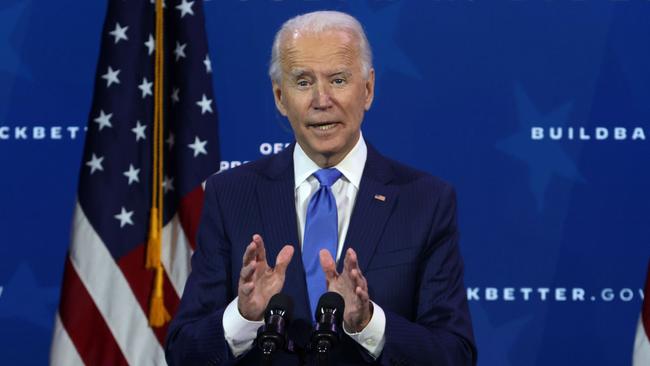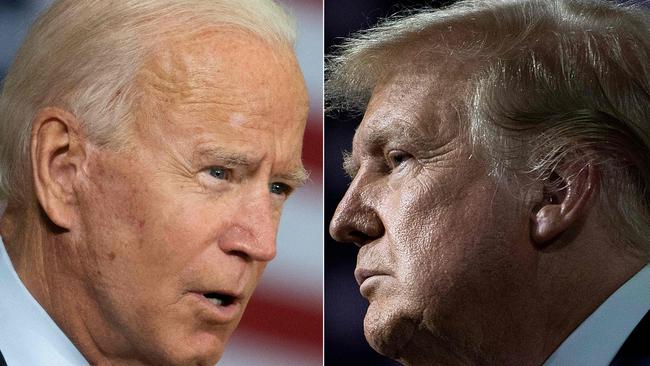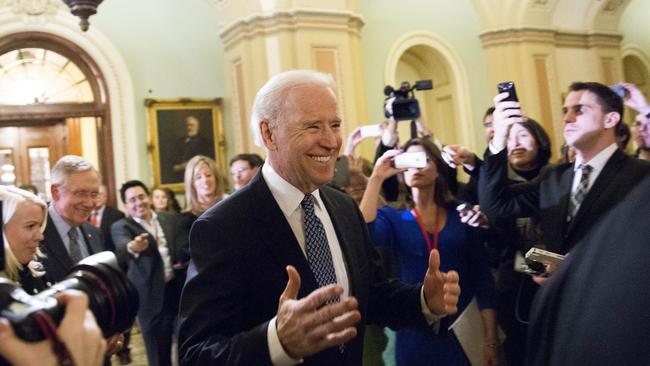
But Mr Tuck was famous above all else for a wry observation that made public the commonly concealed sentiment of just about all losing political candidates everywhere. When he failed in his own attempt to get elected to the California state Senate in 1966, he quipped: “The people have spoken – the bastards!”
Archly grudging as it was, Mr Tuck’s verdict has a nostalgic quality to it. It was, after all, the way American elections used to work. Candidates would campaign aggressively for themselves and their programs. The voters would choose. The winners would celebrate and promise to govern in the interest of all the people. The losers would lick their wounds and pledge to fix what they had got wrong. They might share Mr Tuck’s dim view of the electorate’s judgment and lineage but they’d accept the result, confident their side would get another chance. It all seems rather quaint now.
President Donald Trump isn’t the first losing presidential candidate to dispute the outcome of an election. In the past 20 years it has become routine for the losers to challenge the legitimacy of the winner. Though Al Gore graciously conceded to George W Bush after the long 2000 post-election battle, many Democrats refused to accept the outcome. Some Republicans, including Mr Trump, questioned Barack Obama’s legitimacy after 2008 on the spurious grounds that he’d been born outside the US and wasn’t eligible. In 2016, Democrats insisted, without evidence, that Mr Trump himself had been elected thanks to a campaign of collusion with the Kremlin.
Now Mr Trump himself has gone further and is, four weeks after the election, still insisting that the vote was rigged. He won’t succeed. His legal avenues are all but exhausted and on December 14, barring some late deus ex machina, the members of the electoral college will vote to make Joe Biden the 46th president.

But it’s hard not to view the 2020 election as another ominous milestone in the disintegration of American political stability. It’s not just Mr Trump’s graceless refusal to assent to the election result that highlights the fragility of the republic. The country seems more sharply divided than it has been for the past two decades. The election outcome was close. Mr Trump, though clearly beaten in the popular vote, got more votes than any previous Republican. If the party can hold on to just one of two seats in a Senate run-off in Georgia next month, they will retain control of the powerful upper house of Congress. They made big gains elsewhere in the House of Representatives and at state level.
Despite their relative success down the ballot, the mood of the party’s voters is mutinous. Polls suggest two thirds of Republican voters share Mr Trump’s view that the election was fraudulent. All this, with Mr Trump waiting in the wings for a rematch in 2024, suggests the next few years will be dominated by more of the cold civil war that has characterised American politics and culture: entrenched partisanship in a rancorous and intensifying culture war whose partisans increasingly see themselves as citizens of different countries.
But there might be an alternative. The challenge for President-elect Biden presented by a divided government in a divided nation might also be an opportunity, if he and his political opponents are minded to seize it.
If those Georgia races go as expected, Mr Biden will be the first president elected with a Senate controlled by the opposing party in almost 30 years. His weakness might be the country’s strength. He will have to do something none of his immediate predecessors had to worry about: govern by persuasion.
For all their differences, Barack Obama and Donald Trump both governed with an absolute conviction in their own side’s righteousness. They were both charismatic newcomers to politics who claimed to be transformative figures. They both had the benefit, for their first two years in office at least, of a congress controlled by their own party.
Joe Biden is different in temperament and the circumstances are different too. To get much done he will need to win over both half of a hostile legislature and half of a sceptical public.

His 30 years in the Senate may have equipped him to do that. The absence of a majority in congress will make him less dependent on the more radical elements in his own party and more dependent on his old pals in the legislature.
One senior Republican I spoke to this week who served with Mr Biden in the Senate told me he thought the president-elect was probably contemplating with relish the prospect of divided government.
American democracy is supposed to be uniquely pluralist. That reflects both its historical origins, the visions of the country’s founders who were equally fearful of untrammelled monarchical power and the potential tyranny of a majority, but also its vastly diverse nature.
That pluralism depends ultimately on a willingness to acknowledge there are legitimacies beyond one’s own tribe. It has given way in recent years to a kind of political monomania, whose adherents think all virtue resides in them, and all vice in their opponents.
The next few years will require, and might just bring forth, something different.
The Times







Dick Tuck, a colourful figure on the fringes of American politics a half-century ago, was a notorious prankster who made a name for himself as a tireless tormentor of Richard Nixon. One of his tricks involved posing as a fire marshal at Nixon campaign rallies and feeding artificially low estimates of the crowd sizes to reporters.